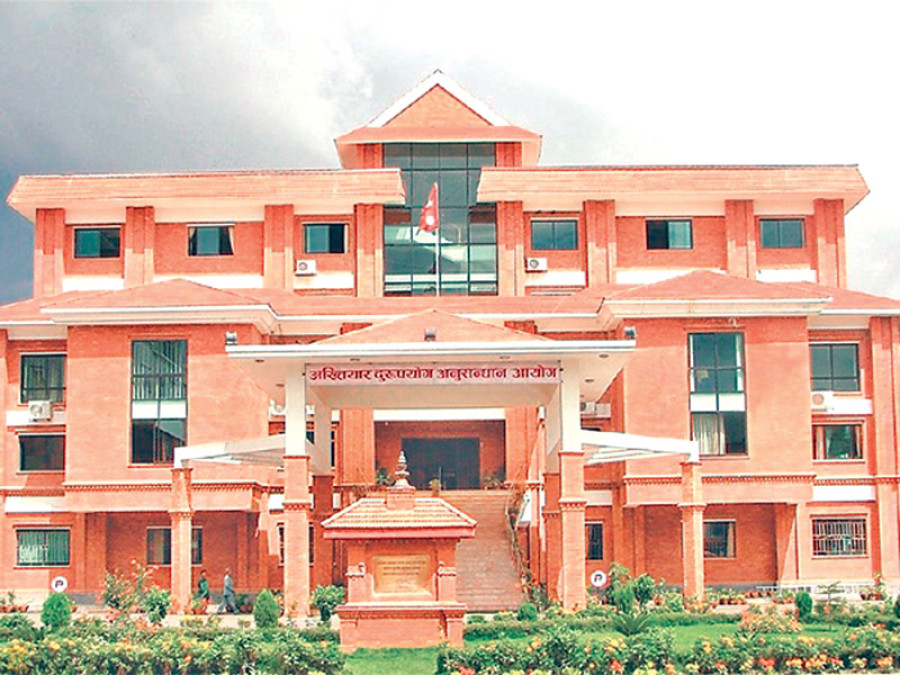Miscellaneous
CIAA makes a fresh approach to win back govt’s confidence
The Commission for Investigation of Abuse of Authority (CIAA) has started rekindling its relations with the government and Parliament, which have been rocky since Lokman Singh Karki took over its reins in 2013.
Prithiviman Shrestha
The Commission for Investigation of Abuse of Authority (CIAA) has started rekindling its relations with the government and Parliament, which have been rocky since Lokman Singh Karki took over its reins in 2013.
The anti-graft body and the Office of Prime Minister and Council of Ministers jointly organised an event to mark the International Anti-Corruption Day on December 9. It was the first time that the CIAA has approached any government body to organise a event. The CIAA and the PMO used to organise separate events to mark the day.
The joint organisation of the even has been viewed as a thaw in relations between the CIAA and the government authorities. It was followed on December 22 by lawmakers representing the Parliamentary Good Governance and Monitoring Committee (GGMC) inspected the CIAA headquarters—something that was a far cry while Karki was at its helm.
Following the suspension of Karki in October, the new leadership under the acting chief Deep Basnyat has sought to improve relations with other state bodies, according to a commissioner. “It was important that we get over a rocky patch of Karki’s tenure and maintain working relations with the executives and the legislature bodies to build a trust.”
Karki had been widely criticised for running the CIAA as an executive body, issuing orders to the government agencies at whims. For example, the commission had ordered the government to cancel survey and construction licences of over a dozen hydropower projects in 2014. The move was vehemently opposed by lawmakers who stated that the anti-graft body ‘overstepped’ it jurisdiction.
Lawmaker and member of the GGMC Nar Singh Chaudhary, who attended a meeting with CIAA officials, said the delegates suggested the commission to conduct serious investigation before making a case public. “The case should not be registered to smear someone’s image,” said Chaudhary.
According to him, the house committee has planned to inspect all 10 CIAA offices outside the Capital after a month.
The relations between the CIAA and Parliament had plunged to a historic low in July when Karki skipped a GGMC summon him to enquire about CIAA’s interference into an entrance exam at Kathmandu University School of Medicine. He had cited ill health for his absence.
Two years ago, the anti-graft body had written to the Parliamentary Agriculture and Water Resource Committee, arguing that it was not answerable to any parliamentary committees other than the GGMC, sparking fury from lawmakers. Terming it contempt of Parliament and the AWRC, the lawmaker expressed a grave concern with the then speaker Subhas Nembang over the incident.
The CIAA believes a fresh approach would help it win back the trust of lawmakers. The move has also been seen as a bid to garner support of lawmakers for expanding its jurisdiction in line with United Nations Convention on Prevention of Corruption, to which Nepali is a signatory.




 9.7°C Kathmandu
9.7°C Kathmandu










